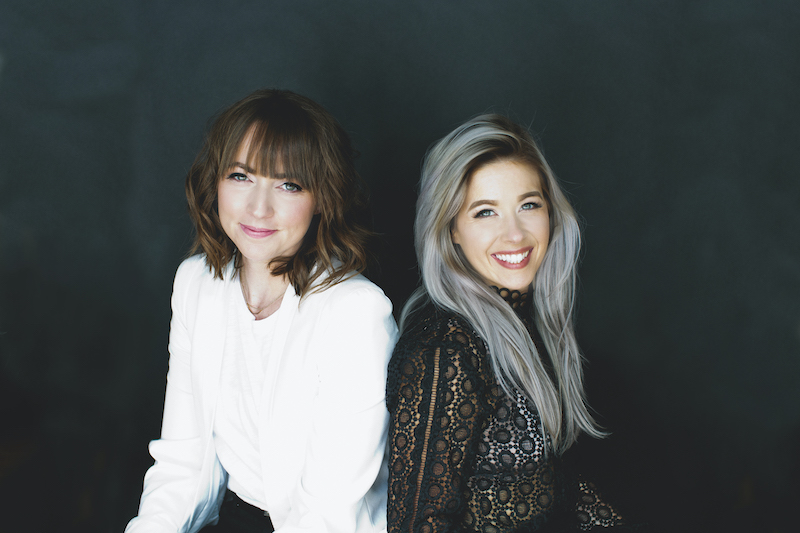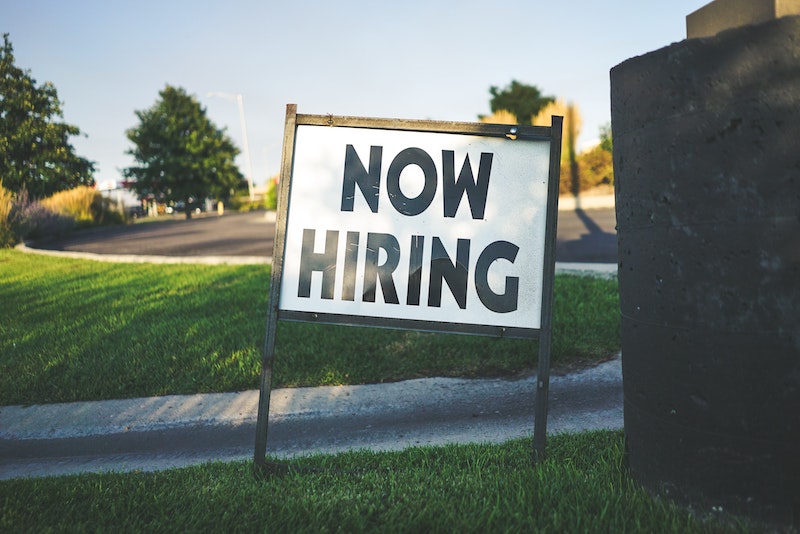
In the Spotlight: Abby Felix Winzenried and Krystle Marks with Lev Apparel
By Olivia Barrow
I’ve never been a big fan of shopping for clothes, and as an adult I avoid it as much as possible. That’s probably why my pandemic wardrobe has heavily featured a rotating cast of fundraiser T-shirts and shorts. But after talking to Krystle Marks and Abby Felix Winzenried, co-founders of Lev Apparel, I have a little more insight into why clothes shopping has always been so frustrating for me.
Krystle, a former personal stylist, told me that since the clothing industry shifted to using standardized sizing in the late 1950s, mainstream clothing brands have almost exclusively designed for the “slim hourglass” body shape, which only 8 percent of women have. Surprise surprise, I’m not one of them.
There are actually five different body shapes, and according to the calculator on Lev Apparel’s website, I’m a strawberry, since my shoulders are wider than my hips. That’s important to know because Lev Apparel designs different pieces to work best on specific body types, in an effort to take some of the guesswork out of finding pieces that work for your body.
But the Madison-based clothing brand also has a mission to empower women through partnerships with ethical clothing manufacturers, and I was even more excited to learn about that when I called up Abby and Krystle last month. The following is an edited transcript of our conversation about their entrepreneurial journey, notably lacking the swear words I uttered when I learned about some of the sexist import taxes this scrappy duo has had to work around.
Q: I love your approach to design, but your mission extends beyond just helping consumers find clothes that fit better, right? Tell me more about that.
Krystle: The main reason we started Lev Apparel was to provide a vehicle for empowering women in the garment industry who were not being treated and paid fairly. As a personal stylist, I learned about the risks of poverty for women in the garment industry. There are 40 million people in the industry and 85% of them are women making less than $3 a day.
We think our concept of design differentiates us, but the motivation and mission behind what we’re trying to accomplish here is to expose and educate women on what other women go through in the fashion industry.
Q: How did the two of you decide to launch a company together?
Krystle: I was doing personal styling, and as soon as I decided I was going to start a clothing line, Abby said let’s have coffee. Four months later she left her job to do this. It was super timely and wonderful. Abby has all the strengths to my weaknesses.
Abby: Prior to this I worked for a nonprofit for seven years doing project management and event planning. I’m more in charge of the behind-the-scenes operations things. Krystle is the CEO and designer.
Q: How did the transition go from being a personal stylist and a project manager to starting a clothing manufacturing line? How did you find partnerships with ethical manufacturers?
Abby: It was hard. When we originally started we thought we were going to create our own artisan group. We learned right away that wouldn’t happen. The startup costs, training people how to sew, this takes a lot of skill that we don’t have. So we quickly pivoted from that. We found a consultant called AOW Handmade who matches brands with producers. With the criteria of ethical clothing focusing on employing women, she found us one partnership.
Krystle: We see a lot of artisan partnerships that do jewelry and homegoods, but not much clothing. You can make jewelry with simple tools and be taught that skill quickly. It’s different from reading a pattern, printing it, sewing all the different pieces.
Q: What does it actually mean to be an artisan manufacturer?
Krystle: My definition is somebody using their skills and being paid fairly. An artisan group functions kind of like a union, although it’s not a union, giving more protection than a garment worker working for a big brand in fast fashion.
The quality of what we’re getting is unlike anything I’ve experienced in fast fashion. For example, our artisans are careful to cut the fabric along the bias to make sure the T-shirt doesn’t turn weird. But in fast fashion they’ll cut in whatever way they can to maximize the yield. It’s not that fast fashion garment workers don’t have the skill, but if you’re under this pressure to make your quotas, the quality of the product is not going to be the same.
Q: What partnerships have you developed so far?
Abby: We started with Sonica Sarna Design in New Delhi. We have a wonderful pattern maker in Chicago, Xochil Herrera Scheer. She has been a huge asset for us. She connected us to a second artisan group in India called Work + Shelter. We are also hoping to grow another relationship in Chicago with a group employing refugee women.
Q: What’s something surprising you learned about clothing manufacturing that has impacted your strategy?
Abby: Oof...learning about international shipping, taxes and tariffs? International shipping is ridiculous, and imported women’s clothing is taxed at a higher rate just because it’s women’s clothing. If it’s a T-shirt, organic, and women's, it’ll be taxed and tariffed real high. Even if it’s unisex, it’s classified as women’s and taxed higher than if it was men’s clothing. So we’ve had to keep that in mind in deciding which pieces get made where, in addition to factoring in the strengths of each partner.
Q: I had no idea. That’s maddening. What has been the biggest challenge you’ve faced so far?
Krystle: My two biggest challenges are finances and exposure. It’s hard when you feel constrained by finances to take it to the next level. And we’re trying to figure out how to gain more exposure. We have a 30 to 40 percent repeat buy rate. That’s pretty high. We know our product is good, it’s just about gaining more eyes.
Abby: You see a lot of opportunities for tech-based companies to get exposure, but not many opportunities to help small business clothing lines. Trying to find those resources was trickier than I thought.
Q: What’s been the most exciting milestone so far?
Krystle: For me it was the day we got those boxes of clothing from New Delhi. You don’t realize how much time goes into developing each one of those pieces. It’s nine months to a year of pouring yourself into something. So when it shows up on your door, it’s a big milestone.
Abby: When we first started working with Work + Shelter, we got a picture of one of the artisans holding our pieces, and we got to FaceTime and see their workspace. It was really sweet to put a face to that person who is creating our clothing.
Q: What does the next stage of growth look like for Lev Apparel?
Krystle: Our audience has primarily been Madison, so a huge focus for us this year is to tap into other areas beyond Madison.
Q: How has the pandemic impacted your growth plans?
Abby: Thankfully we’re an e-commerce brand so our storefront is online. We did lose a few wholesale partnerships with boutiques, but that’s not a huge part of our business. And our artisan groups also had to shut down because India had a lockdown. Because of that, our spring line is now coming out this summer, and we had to cancel our summer line. We’re going to feel it, but overall we’ve been able to keep chugging along.
Q: How has the local entrepreneurial community supported you in navigating the startup world?
Abby: We’ve felt a warm embrace by the Madison community. Doyenne has been really helpful with an Evergreen Grant and cheering us on every time we wanted to curl up and cry. And we got a loan and have a business consultant through WWBIC.
Krystle: We also have space in the Madison Enterprise Center through Madison Commonwealth Development, which we use for a warehouse, office, fitting, prototyping, everything. That’s been huge for us.
Q: How do you divide up your roles as co-founders?
Krystle: When you’re a startup and there’s just two of you, it’s really hard to say, “This is your role and this is my role.” We’re both packaging every order that comes in, Abby is a fit model, we’re both playing every role.
Abby: I hope at some point we can define those roles more and more as we learn how to run this company. But right now it’s just a lot of trial and error, and playing to our strengths. It would be trickier if you had two very similar people running a company. I’m always like ‘It’s all falling apart,” but Krystle has the rose-colored glasses, so it’s a good balance.

